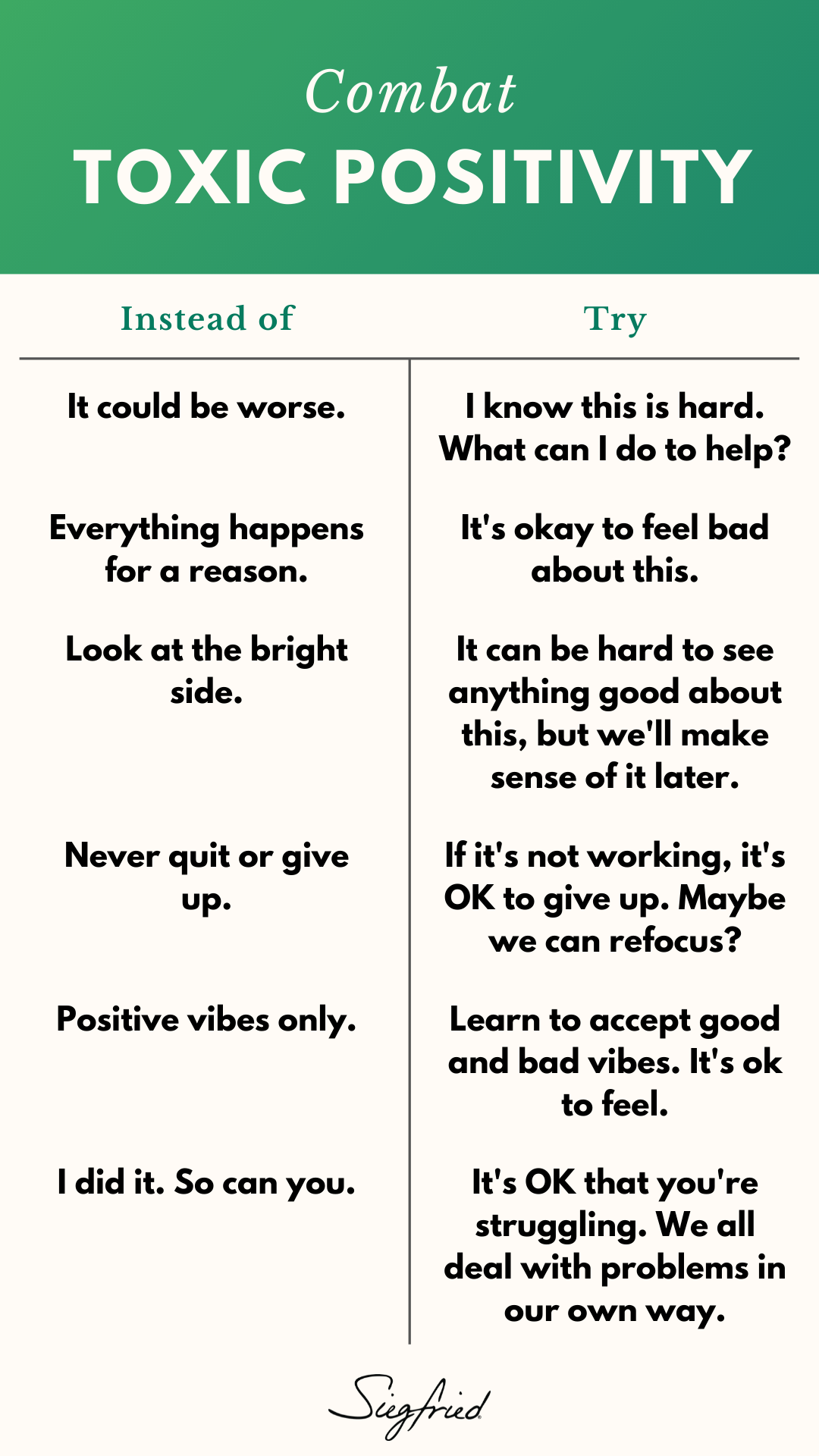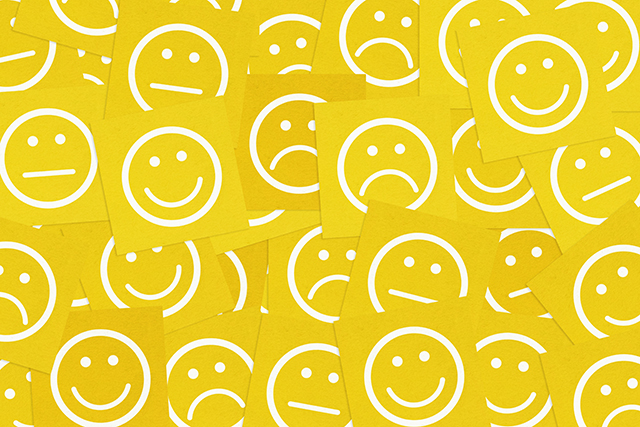We’ve talked about finding joy and being grateful on our blog before. Positivity is powerful, after all.
And while we stand by those articles, I also want to talk about toxic positivity. It’s something that I had experienced (and perpetuated) so many times without even realizing why it bothered me or what I was doing.
 What is toxic positivity?
What is toxic positivity?
Toxic positivity is the idea that you need to stay positive no matter what. It means that you focus on only the good and none of the bad. Ever.
I know, I know. How is that a bad thing?
Toxic positivity is positivity in excess. And just like anything in excess, it has its consequences. When you practice toxic positivity (even with the best intentions), you can ignore or deny the experiences that make us human. You run the risk of belittling other’s completely valid feelings and discouraging them from sharing and being honest. When someone comes to you with a problem, and you tell them keep smiling or you’re lucky or think happy thoughts, there’s a good chance you’re making them feel bad simply for feeling bad.
We can’t select our emotions. You have an emotion or you don’t. And hearing it’s going to be ok or better things are around the corner isn’t going to change your reality.
We need the struggle
In his book The Subtle Art of Not Giving a F*ck, Mark Manson writes, “Everything worthwhile in life is won through surmounting the associated negative experience. Any attempt to escape the negative, to avoid it or quash it or silence it, only backfires. The avoidance of suffering is a form of suffering. The avoidance of struggle is a struggle. The denial of failure is a failure. Hiding what is shameful is itself a form of shame.”
This is the reason we love a good comeback story. It’s why Tiger Woods winning the Masters in 2019 was hailed as one of the greatest comeback stories in a long time. He went through such personal struggle, such public failure, that we couldn’t help but be swept up in the frenzy around his win.
According to clinical psychology Noel McDermott, “better wellbeing should not focus only on being happy, because it denies resilience-building experiences.”
And that’s where toxic positivity is different from positivity. It takes away from your experiences and pushes you to ignore the things that make you stronger.
Signs of toxic positivity
As mentioned, I recently realized I’ve been guilty of being too positive. And if I’m honest, it’s because I’ve been told that I have a negative outlook and don’t always see the bright side. To change that perception, I’ve occasionally created an environment for myself, my friends and family, and my team where it’s not always ok to say I’m really frustrated or I’m beyond annoyed. It’s subtle, and it wasn’t until now that I even realized what I was doing. I hate being told how I should feel or not to feel a certain way, so why would anyone else like it??
Below are seven signs to help you recognize toxic positivity.
- Feeling guilty for your true feelings
- Shaming others (even in a gentle way) for expressing frustration or anything other than positivity
- Minimizing other people’s experiences with “feel good” quotes or statements
- Hiding what you feel because you don’t wait to be dismissed
- Trying to “just get on with it”
- Giving someone perspective (e.g., “it could be worse”) instead of validating their emotional experience
- Brushing off things that are bothering you (e.g., “it is what it is”)
Combatting toxic positivity
With all this in mind, it’s important to say that being positive is not a bad thing, and there’s nothing inherently wrong with striving for it. This is a complex topic, and when I was doing research for this post, I found a really compelling article that argues toxic positivity should be called toxic happiness because positivity is a mindset and happiness is an emotion. (The author contends that happiness can’t always be achieved, but a positive mindset can be chosen at any time.) You might see a future post diving a little deeper into the idea of positivity versus happiness.
Trying to make others smile and lift them up isn’t toxic. Looking for something to make you feel good when you don’t isn’t bad.
It’s when you’re overwhelmingly positive in every situation that you could fall into the trap of toxic positivity. When you ignore feelings or brush past the hard stuff without acknowledging it that you can Sometimes, it’s ok to just say or think, this sucks.
To help put this into context, we put together a few ideas of ways you can respond when others come to you with their problems or feelings.
Maybe you don’t believe in toxic positivity, or maybe you’ve come across this topic before. Either way, it’s worth considering.










